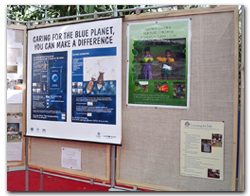

India’s rapidly growing urban areas face complex challenges—from air pollution and waste management to climate change, energy use, and equitable mobility. Addressing these issues demands not only technical solutions but also widespread awareness, responsible behaviour, and active public engagement. Education for Sustainable Development (ESD) plays a vital role in building such informed and empowered urban communities.
ESD in urban areas goes beyond schools and formal education. It involves a wide range of stakeholders, including government officials, urban planners, municipal staff, civil society organizations, residents' associations, and everyday citizens. Programmes are needed to build capacities of government and implementing agencies to plan and execute sustainability initiatives effectively. Schools serve as critical spaces for nurturing young citizens who understand and act on sustainability issues. Public awareness campaigns, participatory processes, and citizen-led initiatives are also essential for addressing civic concerns such as waste segregation, water conservation, public transport, and green spaces.
By integrating ESD into urban governance, infrastructure planning, community engagement, and educational curricula, cities can become more inclusive, resilient, and sustainable. Creating platforms for dialogue, hands-on learning, and collective action helps bridge the gap between knowledge and practice—enabling cities to thrive in harmony with people and the planet.

Major Programmes
Safer Roads for Safer Childhood (SRSC)
Urban Programme Activities in Pune Urban Programme Activities in Ahmedabad Urban Programme Activities in Guwahati
Established as a Centre of Excellence of the Ministry of Environment, Forest & Climate Change, Government of India.